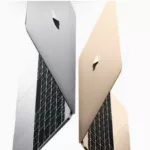Over the past few months, cryptocurrencies have begun to gain widespread appeal. Fueled by promising returns, investors are flocking in droves, with money in hand, to gain an early stake in these financial markets of the future.
Though an opportune time for investors who are looking to make a quick buck, many of the long term implications of these disruptive digital assets are limited in scope, constrained by inherently flawed token design and architecture. Even leading currencies like Bitcoin and Litecoin suffer from extreme price volatility and unstable processing bandwidth – two limiting factors that have dramatically stunted growth. While today’s existing currencies serve as potentially rewarding investment opportunities, none are built in such a way to withstand scale at a macroeconomic level.
Enter UbiquiCoin, an emerging startup that has developed a blockchain ecosystem to reduce many of the critical points of friction that exist in the world of cryptocurrency today. They mitigate the issue of volatility, common to most all other coins on the market, by leveraging a unique two-coin system design, in which “one coin is stable in value and dedicated to transactional commerce, while the second shares 20% of the ecosystem’s revenue and trades freely on the open market.” This innovative two-pronged mechanism balances the wants and desires of consumers, enterprises, and investors.
“To our knowledge, no one else has a two-coin solution,” says Jeff Mahoney, Co-Founder and CEO of UbiquiCoin. “This system is critical to be able to effectively provide upside to investors while also providing price stability for transactions.”
Having already locked in a number of key partnerships with important players across the financial world, their team is excited to accelerate their vision of bringing cryptocurrencies to the masses. They are optimistic that their novel approach to stability will be a long term differentiator, ensuring their coins become a universally accepted form of currency in the imminent future.
Their first coin, the Transaction Coin, is “stable in value and backed by a diversified pool of low risk assets.” Unlike other cryptocurrencies, the Transaction Coin has been developed to be used by both consumers and enterprises at scale. Better yet, you can actually use the coin to make purchases in the real world.
Imagine shopping for groceries, earning your paycheck and paying your bills – all without leaving the secured blockchain ecosystem. Blockchains offer optimal security. They use a cryptographically encrypted blockchain ledger to log and store all of the details that occur between transactions, protecting from the threat of phishing and cyber-attacks.
These coins will not be issued as part of this initial coin offering, rather, they will be produced as needed for consumers. Importantly, “cash received when the Transaction Coins are minted will be directly invested into ultra low risk assets. This eliminates the volatility of the coins’ prices,” ensuring price predictability.
The Progressive Coin, the token that is available in their upcoming initial coin offering, behaves much like a traditional cryptocurrency in that it has the ability to appreciate in value on the open market. The quantity of “Progressive Coins in circulation will be capped by intelligent smart contracts that will only allow additional coins to enter the market, from the reserve, if specific requirements are met.
Similarly, the reserve cannot be increased unless there is consensus approval.” Progressive Coins are backed by a “pool of real, tangible assets, including private equity investments, secured state obligations and life insurances.” These assets guarantee a low-risk safety net of stability and insurance.
Furthermore, Progressive Coins have the potential to appreciate as they earn 20% of revenue from any of the earnings in Ubiquicoin ecosystem (paid for in Transaction Coins). As the volume of Transaction Coins increases over time, Progressive Coin will progressively increase in value. To cover the tracking and maintenance costs of running the exchange, UbiquiCoin will take a small fee for each transaction made on the network.
Complementing their mobile app, UbiquiCoin will issue coin holders a UbiquiCoin wallet card, operating much like a debit card, that will link to their digital wallets. This not only benefits the consumer but also merchants, since the fees and processing times will be lower than traditional credit cards.
Using a two-coin ecosystem, UbiquiCoin can offer “instantaneous transfer of wealth at a fraction of the cost of current offerings.” For a token to feasibly be useful in the real world, it must be able to be exchanged quickly and seamlessly. UbiquiCoin does both. They employ their proprietary “Proof of Majority” algorithm that verifies, authenticates and validates transactions in record sub-second times. This mechanism is designed to be used at high volume without compromising any of its critical security features.
As UbiquiCoin continues to amass support from the FinTech community, it will be interesting to see how they live up to their vision of becoming the most decentralized, active network of consumers and enterprises in the world. At this point, it seems inevitable that they will be able to provide a usable form of cryptocurrency in the near future. The more pressing question, really, is how far away are they from global scale?








